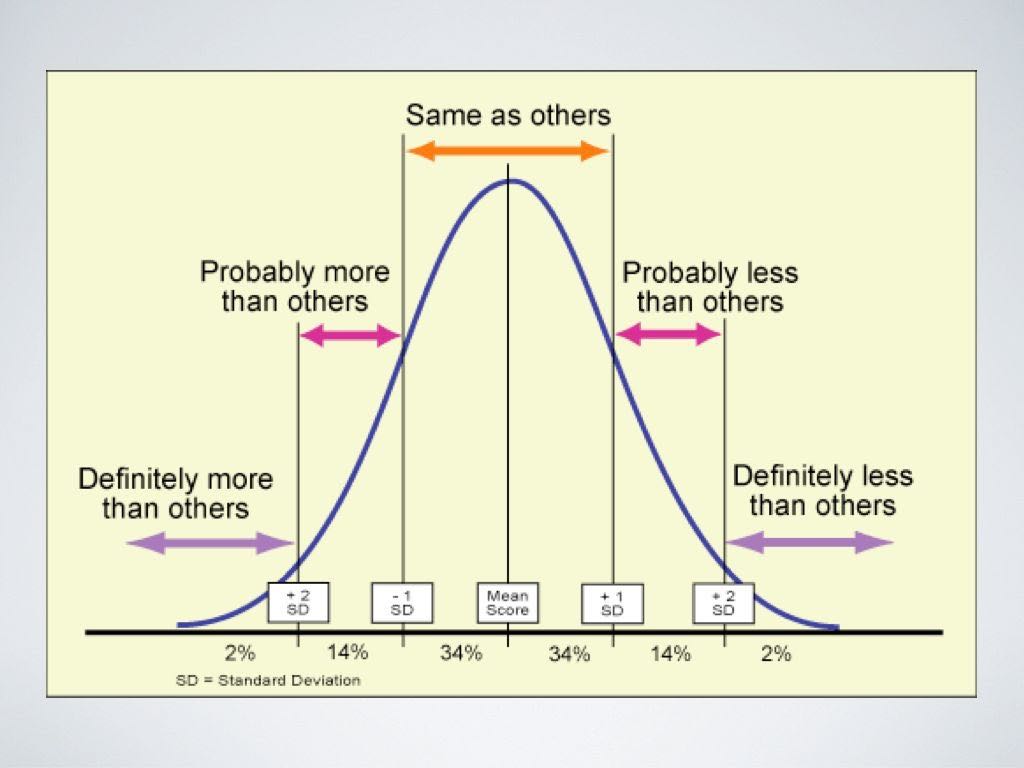Many people suffer from lack of sleep, but they don’t understand how it impacts their entire body. They think they are only tired and can double-fist energy drinks to stay awake. But what if I told you that your fat loss plateau might be related to too little sleep. If you struggle to fall or stay asleep or regularly pull all-nighters and have addressed the basics of sleep, then perhaps, it’s time to consider a sleep aid.
Every system in your body becomes dysfunctional without sleep. Your sensitivity to carbohydrates drops, your immune system struggles to manage inflammation, and your endocrine system fights to remain normal. Think of it like a car engine … your body starts to redline, and if you continue to push it, something is going to break.
If you’re dieting or trying to improve body composition, everything becomes exponentially more difficult because sleep loss can quickly derail your progress and halt muscle gain and fat loss. One study found that dieters lost 55% LESS fat and 60% MORE muscle when they reduced their nightly sleep from 8.5 hours to 5 hours for only two weeks.[1]
Imagine what sleep deprivation does over 3-6 months while dieting…
First, get to the root of your sleep problem. These usually fall into 4 categories – can’t fall asleep, can’t stay asleep, struggles to wake up, and works the night shift. If you fall into one of these categories, address the basics of sleep by following the tips in this article before considering sleep aids.
Simplifying Sleep: One Wink at a Time
If you poll most Americans, you’ll likely find many are sleep deprived but don’t care. Or, they simply don’t know the facts.
“Subjective sleepiness and fatigue ratings showed much smaller increases, suggesting an escalating dissociation between subjective perceptions of sleepiness and actual cognitive performance capability.” — Goel et al. 2013[2]
In other words, what you perceive sleep deprivation does to your body does not match with the actual diminished performance.
Many fall for…
“Most people may be like that, but it doesn’t apply to me.”
Except it does.
Some data indicates that there may be a tiny percentage who can thrive on 6 hours of nightly sleep. However, the bad news is that it applies to less than 1% of the population.[3]
So, you’re probably not part of the group who thrives on 6 hours. You likely fall right in the middle of the curve.

Source: ThinkingSciFi
Everyone wants to be unique and assumes that recommendations don’t apply to them. But the data just doesn’t stack up when it comes to avoiding the negative effects of sleep deprivation.
“2 weeks of restriction to 6 hours time in bed per night resulted in cognitive deficits equivalent to those found after one night of total sleep deprivation. The cumulative cognitive deficits increased in a nearly linear manner over days of 4 and 6 hours time in bed.”[4]
If you sleep deprive yourself by only 2 hours each night (aka 6 hours in bed instead of the recommended 8-9) for 2 weeks, you’ll see a cognitive decline like if you didn’t sleep at all.
Sleep adaptation isn’t physiologically possible. Unlike training, you don’t “get better over time” when it comes to sleep deprivation – quite the opposite. As fatigue accrues, memory and speech slow, and performance decreases.
Individualization in a World of Absolutes
We have been duped. We’ve been sold on the idea of generalizations and simple one-stop-shop solutions, especially when it comes to dieting and fat loss.
Unfortunately, humans don’t work like that. We are all unique.
As much as social media influencers preach the message “you’re not a special snowflake.” It turns out, you actually are.
In a previous post, I mentioned the universal need for 8 hours of sleep for most of us. However, some people need closer to 9 or 10 hours when dealing with an infection or pushing the barriers of human performance.
Sleep needs vary widely. But more often than not, they are directly related to lifestyle and our perceptions. When considering sleep requirements, factor in the following:
- Current training volume
- Presence of pathology
- Latent infections – Bacterial overgrowths, fungal infections
- Endocrine-related dysfunction – Low testosterone, thyroid problems
- Poor glycemic control – Poor management of type I or II diabetes
- Increased viral load – Mono (Epstein-Barr), COVID
- Environmental inputs – Mold, electromagnetic fields (EMF)
- Sleep apnea
- Gastrointestinal dysbiosis – An imbalance between healthy and unhealthy bacteria
- Chronotype (early bird vs. night owl) – This is likely more a result of one’s environment rather than genetic predisposition, but it is still an important piece of the puzzle.
- Professional/career demands – Day vs. night shifts and travel across time zones
- Stress – Real or perceived
- Micronutrient sufficiency
- Total caloric intake – Deficit vs. surplus
Now obviously, some factors require professional medical intervention to fully resolve, but be aware that each increases the need for sleep.
Consider the last time you were sick. What was the one thing you wanted to do all. the. time?
Sleep
Your body is designed to primarily recover through one key mechanism – sleep. If you take that away or drastically reduce it, you create dysfunction through every system in the human body.
Sleep Aid Supplements – Magic Bullets or Worthless Snake Oil?
I want to make one point especially clear:
Sleep aid supplements will never make up for a poor environment or nutritionally weak diet.
Many people will scroll through this article and immediately want to purchase all the recommendations below to “fix” their sleep. Keep in mind, supplements (especially sleep aids) are merely band-aids.
Until you address your environment and lifestyle, you will continue to struggle with sleep, no matter how many supplements you take.
Remember, fundamentals first and foremost.
Moving on…
MAGNESIUM
- Plays a role in over 300+ enzymatic functions within the body
- Very hard to acquire the recommended dietary allowance (RDA) through food alone
- Must dose slowly, increasing over time (titrate) to avoid gastrointestinal (GI) distress
- Needed to support neurological and muscular relaxation
- Some forms of magnesium (i.e., threonate) may cross the blood-brain barrier and provide neuronal protection along with sleep benefits[5, 6, 7]
- Even though it is cheap, do not buy magnesium oxide due to its exceptionally low absorption (bioavailability) – always opt for magnesium chelate, glycinate, taurine, malate, or citrate.
- DOSAGE: 3-5x bodyweight in milligrams (mg) – you MUST titrate slowly.
MELATONIN
- Starter, not a finisher – initiates sleep but does not sustain it.
- Half-life (the time it takes to excrete 50% of the compound) = 1-2 hours
This is why some people wake up 2-3 hours after taking melatonin and can’t fall back to sleep. Melatonin encourages sleep but doesn’t keep you asleep.
- Use the smallest effective dose and titrate slowly – more is not better!
- Avoid using large dosages over 5 mg (at least initially) because these are more likely to cause morning sluggishness.
- Liquid formulations from a dropper are easier to titrate over time and allow for more flexibility with dosing.
- DOSAGE: Begin with 100-300 mcg 20-30 minutes before bed and slowly increase to 1 mg if no improvement is noted in sleep quality.
One further note on melatonin and sleep aid supplements in general. Please be very careful about what you buy. While money may be a factor influencing which brands you choose, I strongly encourage you to thoroughly research any product before you purchase it. Lawsuits abound in the supplement industry, and marketing tends to drive consumer interest, but that doesn’t guarantee their safety or effectiveness.
When it comes to supplements, you get what you pay for.[8]
VITAMIN D
- DISCLAIMER: More research on vitamin D is needed because the data on supplementation for sleep is still developing, and effectiveness cannot be confidently determined based on the current preliminary studies.
- Serum blood levels of vitamin D are often low in adults due to poor lifestyle habits.
- Supplementation will not promote the same health benefits as routine sun exposure, regardless of serum vitamin D levels.
- Low vitamin D and poor sleep – chicken or the egg?
Is low vitamin D the cause of poor sleep? Or, does poor sleep happen because of a lifestyle that includes a lack of sunlight, resulting in low vitamin D levels?
- Any supplementation above 5,000 IUs daily necessitates the need for lab monitoring every 2-4 months.
- Sleep improvements can occur with sleep aids, but only when deficiencies are present.
- DOSAGE: 3-5,000 IUs taken with a large fat-containing meal in the winter months for most adults to maintain adequate serum concentrations. None is needed in the summer when you get adequate sun exposure.
Some individuals may need higher dosages based on geographical location, genetic factors, nutritional intake, and environmental considerations.
L-THEANINE
- An active amino acid found in green tea.
- It promotes focused relaxation without drowsiness or sedation.
- It is often stacked with caffeine in sports supplements to reduce the potential for caffeine-induced anxiety and restlessness. The compounds work together to promote calm, focused attention.
- DOSAGE: 100-400 mg within 30-60 minutes of bedtime or 100-200 mg anytime caffeine is consumed.
LAVENDER
- Research, along with anecdotal reports, suggests that lavender’s scent promotes relaxation and reduces anxiety, thus improving sleep quality.
- Please be aware that preliminary data suggests that topical lavender may exert estrogenic properties and may cause breast enlargement (gynecomastia) in males.[9]
- DOSAGE: 1-5 drops in a diffuser or enough applied to bedding to introduce the smell. Due to the potential endocrine-related issues with topical lavender applications, directly applying it to the skin is not recommended.
Additional Sleep Aid Compounds
This article is nowhere near exhaustive because sleep aid supplementation is an evolving research subject. If I tried to cover all the available compounds and their corresponding research in explicit detail, it would be a full-length book.
The following is an additional list of potential sleep-enhancing compounds that may be worth further investigation.
Remember, only consider these compounds if you have already addressed your lifestyle, sleep habits, and environment.
- Valerian Root: 450 mg
- Glycine: 3-5 g
- GABA: 100-200 mg
- Adaptogens
- Rhodiola: 200-400 mg
- Ashwagandha: 200-500 mg
Your body is an incredible machine, capable of effortlessly adapting to a nearly infinite number of stimuli. However, keep in mind that adaptation for survival is very different from adaptation for performance.
“Your ability to function on little to no sleep is more so a testament to your body’s resiliency, not its performance capacity.” — Jeff Nichols (Navy SEAL/Strength Coach)
Unfortunately for some, more sleep may not be an option due to career, family, school, or other responsibilities. Sometimes life isn’t ideal, and we have to make the best of it. For those times, you might need sleep aids to enhance your sleep quality in the interim. But for others, the conscious decision to sleep deprive themselves doesn’t come without a cost, especially when dieting.
DISCLAIMER: The information included in this publication is for educational purposes only. It is not intended nor implied to be a substitute for professional medical advice. The reader should always consult with a healthcare provider before using any supplements because of the potential of supplement/drug interactions.






Give the gift of EMF protection to pregnant mothers and their babies. This sleep gift ensures a restful sleep while safeguarding against harmful electromagnetic radiation.
Understanding the 5 Stages of Sleep and Sleep Cycles :https://sleepgift.ca/blogs/sleep-better/understanding-the-5-stages-of-sleep-and-sleep-cycles?_pos=2&_sid=4a697256c&_ss=r